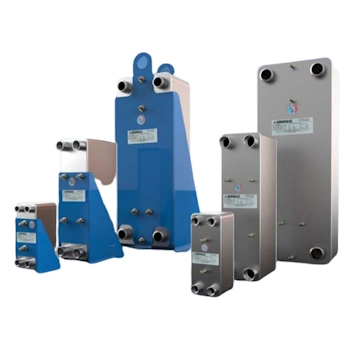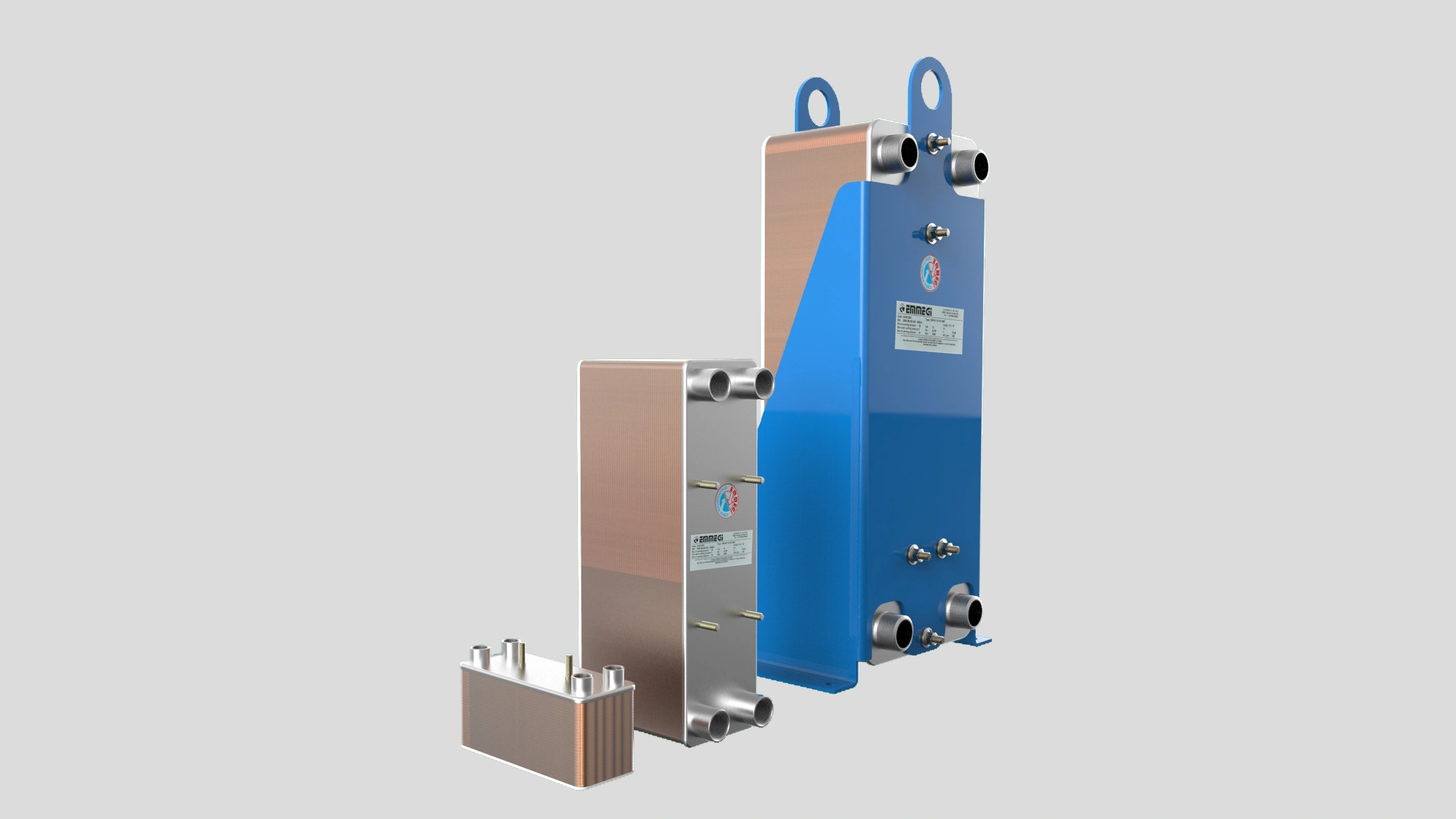Heat exchangers are fundamental components in numerous industrial processes. These devices are designed to transfer heat between two or more fluids, helping maintain optimal operating temperatures and improving energy efficiency. Let’s take a closer look at where heat exchangers are used.
Chemical and Petrochemical Sector
In the chemical and petrochemical sector, heat exchangers are used to heat or cool process fluids, which is essential for chemical reactions and product separation. For example, in oil refineries, heat exchangers help manage temperatures during distillation, improving process efficiency and the quality of final products.
Energy Production
Heat exchangers play a crucial role in energy production, particularly in thermal and nuclear power plants. In these applications, they are used to transfer heat generated from the combustion of fossil fuels or nuclear fission to a working fluid, such as steam, which powers the turbines. This process is fundamental for converting thermal energy into mechanical energy and subsequently into electrical energy.
For more details on heat exchangers used in industrial settings, visit our page dedicated to Heat Exchangers – LubeTeam Hydraulic.

Applications in the Automotive Sector
Engine Cooling Systems
In the automotive sector, heat exchangers are essential for the efficient operation of engines. The radiator, one of the most common heat exchangers, serves to dissipate the heat generated by the engine, keeping it within a safe operating temperature. This process prevents engine overheating and extends its lifespan.
Air Conditioning Systems
Heat exchangers are also used in automotive air conditioning systems. In air conditioners, heat exchangers transfer heat from the inside of the cabin to the outside, cooling the interior air and enhancing passenger comfort. This technology is crucial for maintaining a comfortable environment inside the vehicle, regardless of external conditions.
Domestic and Commercial Applications
HVAC Systems
In domestic and commercial applications, heat exchangers are widely used in HVAC systems (Heating, Ventilation, and Air Conditioning). These systems use heat exchangers to transfer thermal energy between indoor and outdoor air, regulating the temperature of indoor environments. Heat exchangers in HVAC systems improve energy efficiency, reduce operating costs, and increase living comfort.
Water Heaters and Boilers
Another domestic application of heat exchangers is found in water heaters and boilers. In these devices, heat exchangers transfer the heat produced by gas combustion or electric heating to water, providing hot water for sanitary use or heating. This process is crucial for ensuring a constant supply of hot water efficiently and safely.

